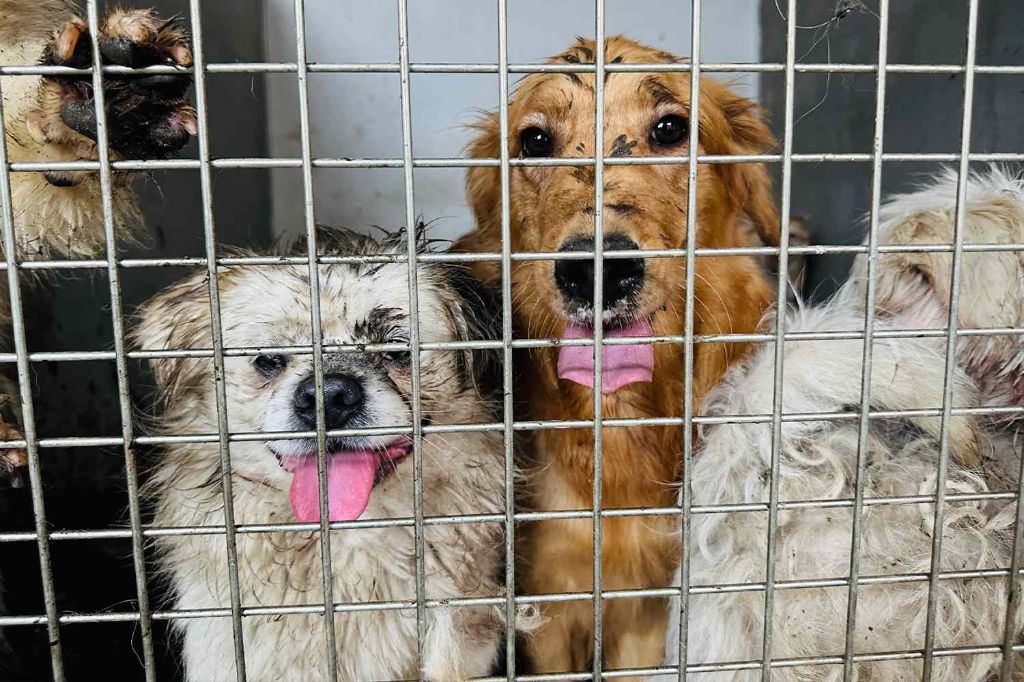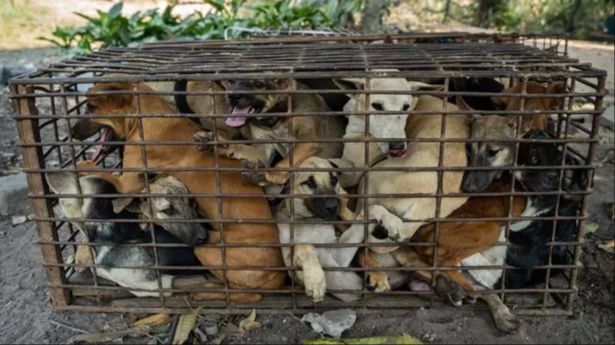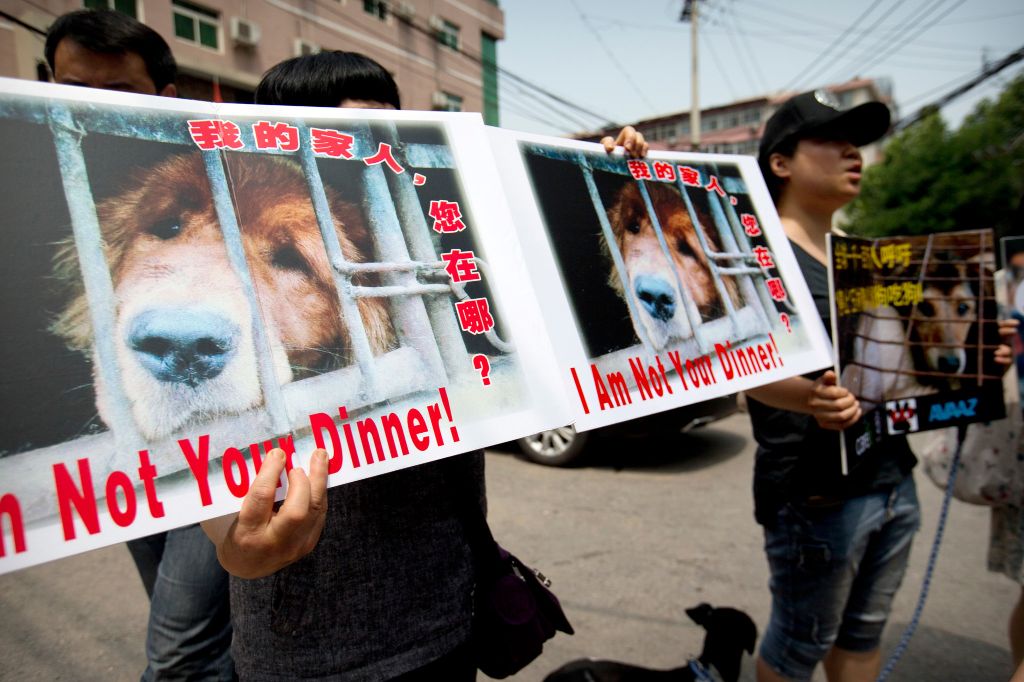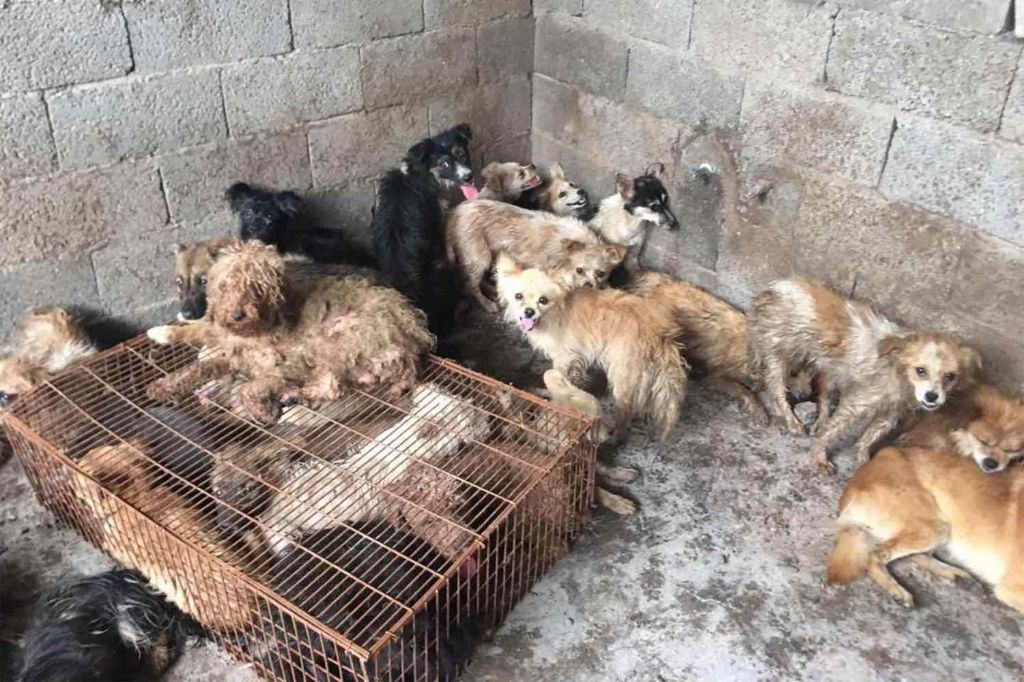Introduction
The annual Lychee and Dog Meat Festival, commonly known as the Yulin Dog Meat Festival, is an event held during the summer solstice in Yulin, China. The festival lasts about 10 days during which thousands of dogs, many of them stolen pets, are slaughtered and served as meat. This controversial event started in 2009 as a commercial enterprise to boost the local dog meat trade. Activists around the world have denounced the festival and campaigned vigorously to end it, but the local government has continued to promote the event as part of Yulin’s cultural heritage.
This article provides a comprehensive look at the 2023 Yulin Dog Meat Festival, examining the event’s background, preparations, activities, controversies, and efforts to curtail or shut it down. With graphic details and first-hand accounts, it aims to give readers a deeper understanding of this highly contentious festival.
2023 Festival Dates
The Yulin Dog Meat Festival is scheduled to take place from June 21 to June 30 in 2023. This marks the festival’s 15th year running, as it first began in 2009 and has continued annually despite widespread condemnation. The 10-day festival has become associated with the summer solstice, falling just after the June 21st date each year. The festival mainly takes place at markets throughout Yulin where thousands of dogs and some cats are slaughtered and sold for their meat. Dog meat dishes are eaten by some people to celebrate the summer solstice during this time.

According to the Asia for Animals website, https://www.asiaforanimals.com/yulin, dog meat will be sold throughout Yulin from June 21-30, with the peak of slaughter and sales on June 21 specifically.
Location
The Yulin Lychee and Dog Meat Festival takes place in Yulin, a prefecture-level city in China’s Guangxi Zhuang Autonomous Region. Yulin is located in southern China, about 175 miles southwest of Nanning, the capital of Guangxi.
The festival events are centered in Dongkou, a town 15 miles outside of Yulin city proper. Dongkou holds a large open-air market where an estimated 10,000 dogs and cats are sold and slaughtered each year during the festival. The market consists of about 100 vendors that set up temporary stalls to sell live dogs and cats as well as various dog meat products.
While Yulin city officials have tried to distance themselves from the festival in recent years, the local Yulin government is still involved in licensing and regulating the vendors at the festival market in Dongkou. The area has a long history of dog meat consumption, and defenders of the festival argue it is an important part of the region’s culture and economy.
Number of Dogs
Estimates on the number of dogs slaughtered and consumed during the Yulin Dog Meat Festival vary widely. According to the Wikipedia article on the festival, initial reports stated that 10,000 to 15,000 dogs were killed during the 10-day event. However, more recent estimates range from 1,000 to 15,000 dogs slaughtered.
In 2014, a local Yulin government official stated that less than 1,000 dogs were killed for the festival that year. However, animal rights activists claimed the real number was much higher, estimating around 10,000 dogs killed. Obtaining accurate counts is difficult due to the secretive operations of the dog meat traders.
Regardless of the exact number, it is clear that thousands of dogs, many of them stolen pets still wearing collars, are brutally slaughtered each year for their meat during the festival. The inhumane treatment and suffering experienced by the dogs have made the Yulin Dog Meat Festival extremely controversial around the world.
Preparation Process

In the weeks leading up to the Yulin festival, dogs are captured and confined in cramped cages without food or water. Many of the dogs are stolen pets or strays snatched from the streets. The dogs suffer immense fear and stress from being crowded together in harsh conditions.
Slaughterhouse workers use brutal methods to kill the dogs. Common techniques involve bludgeoning dogs with sticks and blows to the head with metal rods. Some dogs are hanged or bled out. Many dogs are still alive when they are thrown into boiling water to remove their fur. The slaughter is extremely inhumane, inflicting tremendous suffering on the dogs.
According to undercover investigations by animal welfare groups, many of the dogs die slowly and in agony because slaughterhouse workers lack proper training and equipment. The scale of the festival trade results in sloppy, haphazard killings that prolong the dogs’ misery.
Health Concerns
Consuming dog meat poses significant health risks, including the spread of diseases. According to the OIPA, dog meat consumption in Guangxi has led to high morbidity rates of cancer and the highest rate of rabies in China. Dogs slaughtered for meat often come from unknown sources, without health screening or proper veterinary care. This increases the risk of contamination and disease transmission to humans.
World Animal Protection states that the Yulin festival specifically poses a “huge threat to public health.” They argue that the unregulated dog meat trade spreads not just rabies but also cholera and trichinellosis. The cruel methods of slaughter and unsanitary conditions where dogs are kept and butchered also increase contamination.
Overall, experts agree consuming dog meat has concerning health implications. The Yulin festival facilitates an uncontrolled trade that disregards safety standards for food preparation and disease prevention.
Activism & Controversy

The Yulin Dog Meat Festival has faced significant backlash from animal activist groups and concerned citizens who view the event as inhumane. According to the Wikipedia article on the festival, the event is “widely condemned by international critics of cruelty to animals.”
Many animal welfare organizations, including Humane Society International, Animals Asia, and Soi Dog Foundation have spoken out against the festival and lobbied the Chinese government to impose a ban. Activists have staged protests in China and petition drives globally to put pressure on Yulin authorities.
In recent years, the backlash seems to be making an impact. Although authorities have not explicitly banned the sale of dog meat in Yulin, some restrictions have been put in place. Vendors are no longer allowed to slaughter dogs in public areas during the festival. There are also regulations prohibiting sales of dog meat from unlicensed vendors.
While activists view these as small wins, the ultimate goal remains ending the Yulin Dog Meat Festival entirely. According to this Newsweek article, dozens of animal welfare charities and hundreds of thousands of activists continue urging the government to impose a countrywide ban on the dog meat trade and this particularly controversial festival.
Cultural & Economic Factors
The Yulin Dog Meat Festival continues despite international backlash due to cultural and economic factors. According to Wikipedia, dog meat consumption in China dates back thousands of years and was historically believed to have medicinal benefits during summer. The Lychee and Dog Meat Festival was started in 2009 by dog meat traders to boost sales, overlapping with the summer solstice lychee harvest.
Although dog meat consumption is declining among younger Chinese generations, the festival persists due to the economic benefits for Yulin. The festival provides a boost in tourism and revenue for dog farms, slaughterhouses, markets and restaurants involved in the dog meat trade. According to The Independent, an estimated 10,000 dogs are slaughtered for the festival, generating millions in sales. Thus, the cultural history and modern economic incentives make ending the festival a challenge.
Efforts to End Festival

Animal rights groups around the world have mobilized to fight the Yulin Dog Meat Festival through activism and policy changes. Some of the major efforts include:
- Over 11 million people have signed petitions on sites like Change.org calling for an end to the festival. Celebrities like Ricky Gervais have helped spread awareness of the petitions.
- The Duo Duo Animal Welfare Project and Humane Society International have worked together with Chinese groups to rescue dogs from trucks headed to slaughterhouses and the live markets. In 2014, they rescued over 300 dogs.
- Many Chinese animal rights activists have staged on the ground protests in Yulin to raise awareness and urge a ban. In 2015, about 200 Chinese protesters rallied outside a government building.
- In 2011, over 70 Chinese animal rights groups formed the Asia for Animals Coalition to lobby policymakers to outlaw the dog meat trade. They’ve delivered over a million signatures to authorities.
- Some key cities in China, including Shenzhen and Zhuhai, have banned dog and cat meat consumption due to activism and public pressure.
- The Yulin local government has introduced some restrictions, requiring regulated slaughtering certificates and banning the open-air meat markets. However, the restrictions are loosely enforced.
Conclusion
The Yulin dog meat festival is an annual tradition that has sparked considerable controversy and debate. While some defend it on cultural and economic grounds, animal activists argue it should be banned due to ethical concerns over the cruel treatment of dogs and unsafe slaughtering practices. Although recent years have seen some modest declines in the scale of the festival, the local government continues to sanction it, and thousands of dogs are still killed each year.
The future of the Yulin festival remains uncertain. While national and international pressure to end it persists, changing local attitudes and practices will likely be a gradual long-term process requiring education and economic support for vendors to transition away from the dog meat trade. Much work remains in implementing humane slaughtering laws and officially banning the festival. However, through continued activism and constructive engagement there is hope that the Yulin festival’s worst abuses may eventually come to an end.
In summary, the Yulin dog meat festival represents a complex controversy at the intersection of tradition, economics, animal welfare, and ethics. There are reasonable arguments on various sides, but greater progress still needs to be made in transitioning away from cruel practices and respecting the dignity of animals. With open and thoughtful dialogue, more humane compromises may emerge that balance tradition with compassion.